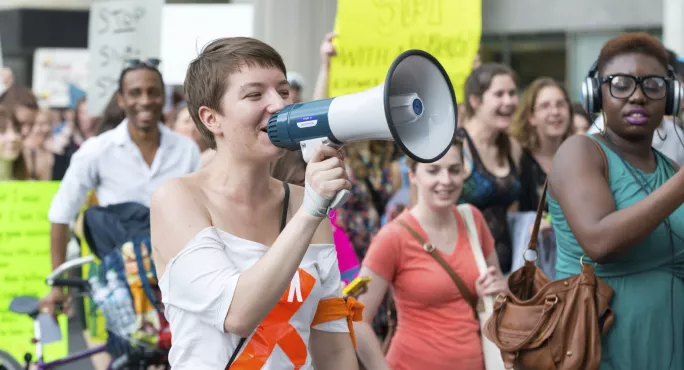Before this week, if I had been looking for a cause to engage a class, the United Nations International Day of Commemoration and Dignity of the Victims of the Crime of Genocide and of the Prevention of this Crime would not have been at the top of my list.
The title is rather uninspiring and the subject matter is difficult; it is the type of thing that most teachers would not want to touch with a barge pole.
But this week, a group of Year 12 students from my school came together with peers from three other schools to present to Parliament a report that they have researched and written on the state of genocide education in the UK.
Far from being uninspired, the students were motivated by undertaking work that has a chance to make a real difference in the world. It showed me that getting students to conduct research and raise awareness are the best ways to engage them with a serious topic.
Since starting the project in September, the pupils have surveyed 789 of their peers as well as 82 teachers. They have interviewed survivors of genocide and leaders of genocide education charities.
Their research showed that 79 per cent of young people could not name a single genocide that occurred after the Holocaust. And the majority of teachers said that they do not teach about more modern genocides because of a lack of time and resources.
However, teaching students about troubling chapters in recent history - such as the genocides that occurred in Cambodia, Rwanda, Bosnia and Darfur - can be a powerful thing. Anyone who has heard a genocide survivor speak will attest to the emotional impact that their testimony has on young people. And the evidence of this project shows that involving those same young people in raising awareness about genocide will have a stronger impact still.
It has been wonderful to see students construct historical knowledge from a number of different sources, compile surveys, analyse results and form conclusions without a great deal of guidance. Their new-found understanding of more modern genocides has strengthened their commitment to genocide prevention and instilled a sense of activism, which came to the fore as the students presented their findings to MPs this week.
And it doesn’t stop there. The students have big plans for what comes next.
Today, boys from Hampton School will be hosting a live Q&A with survivors from the genocide against the Tutsi in Rwanda and the genocide in Darfur (12.45pm @genocide8020 #genocidevictimsday #askagenocidesurvivor).
In the longer term, the students recommend in their report that young people be trained to teach their peers about genocide, run activities on Holocaust Memorial Day and help survivors to reach more schools through the use of social media.
We owe it to the survivors to make sure that future generations are learning about the prevention of genocide. Through their involvement in the project, these students will be able to help make that happen.
Andy Lawrence is a history teacher at Hampton School. Students from Hampton School, Pimlico Academy, Reach Academy Feltham and Tapton School took part in the project.
Want to keep up with the latest education news and opinion? Follow TES on Twitter and like TES on Facebook
